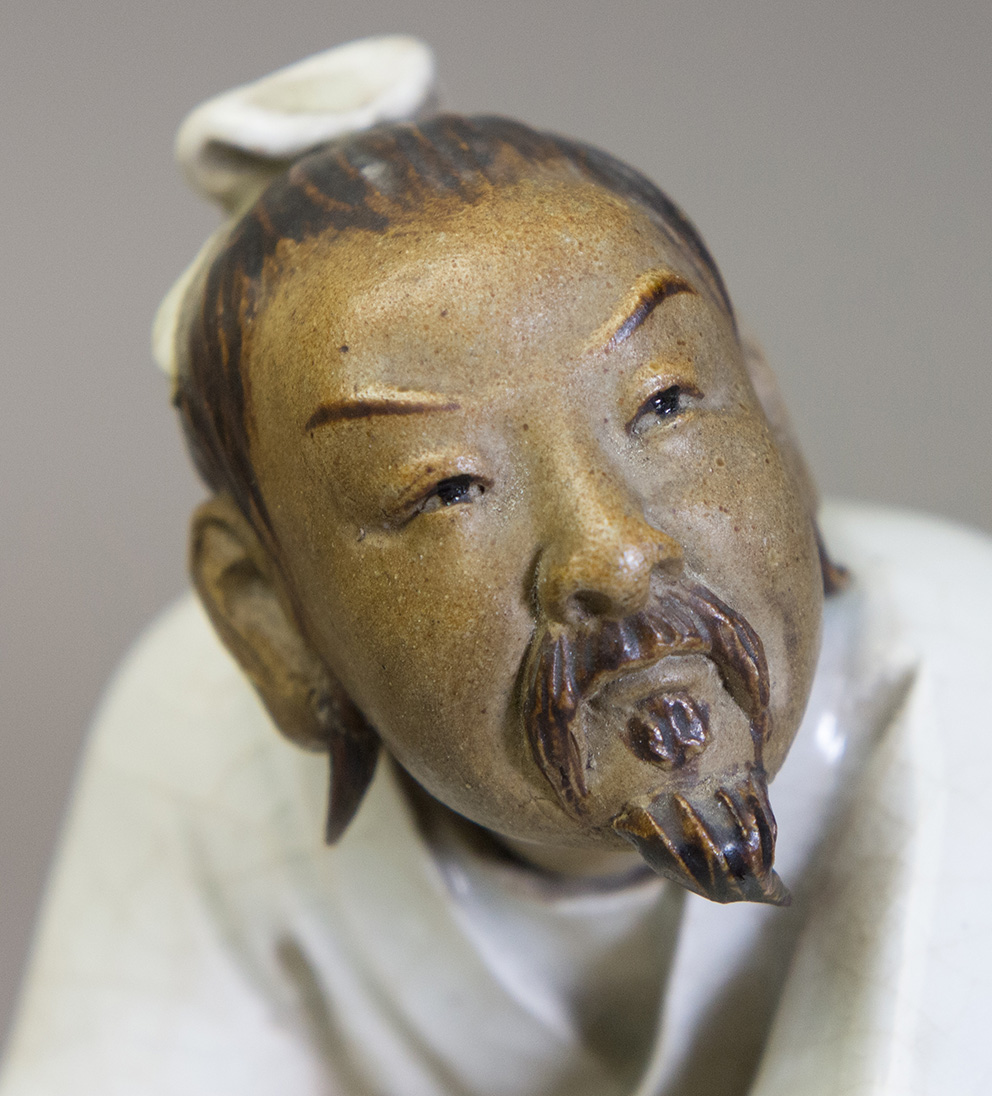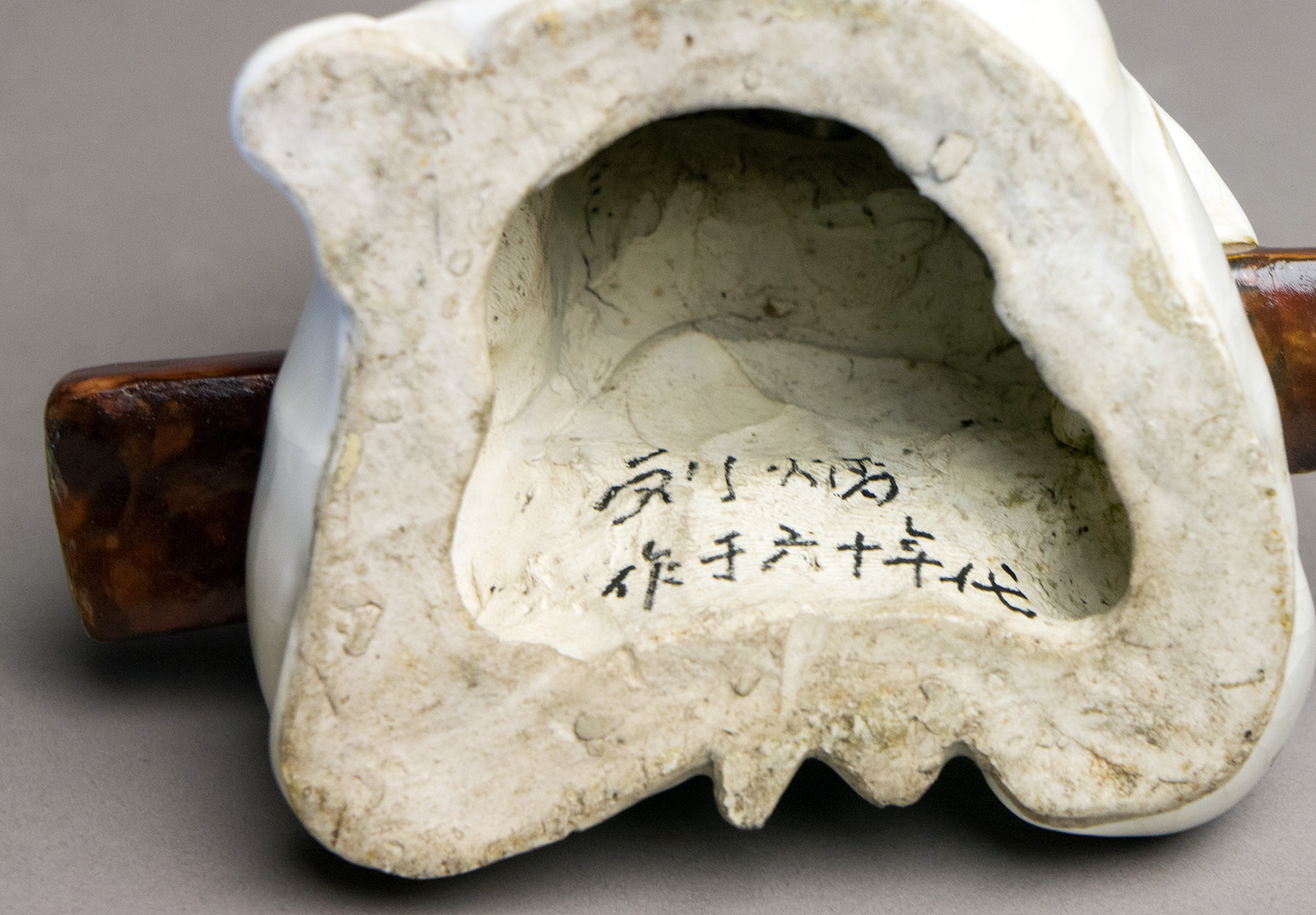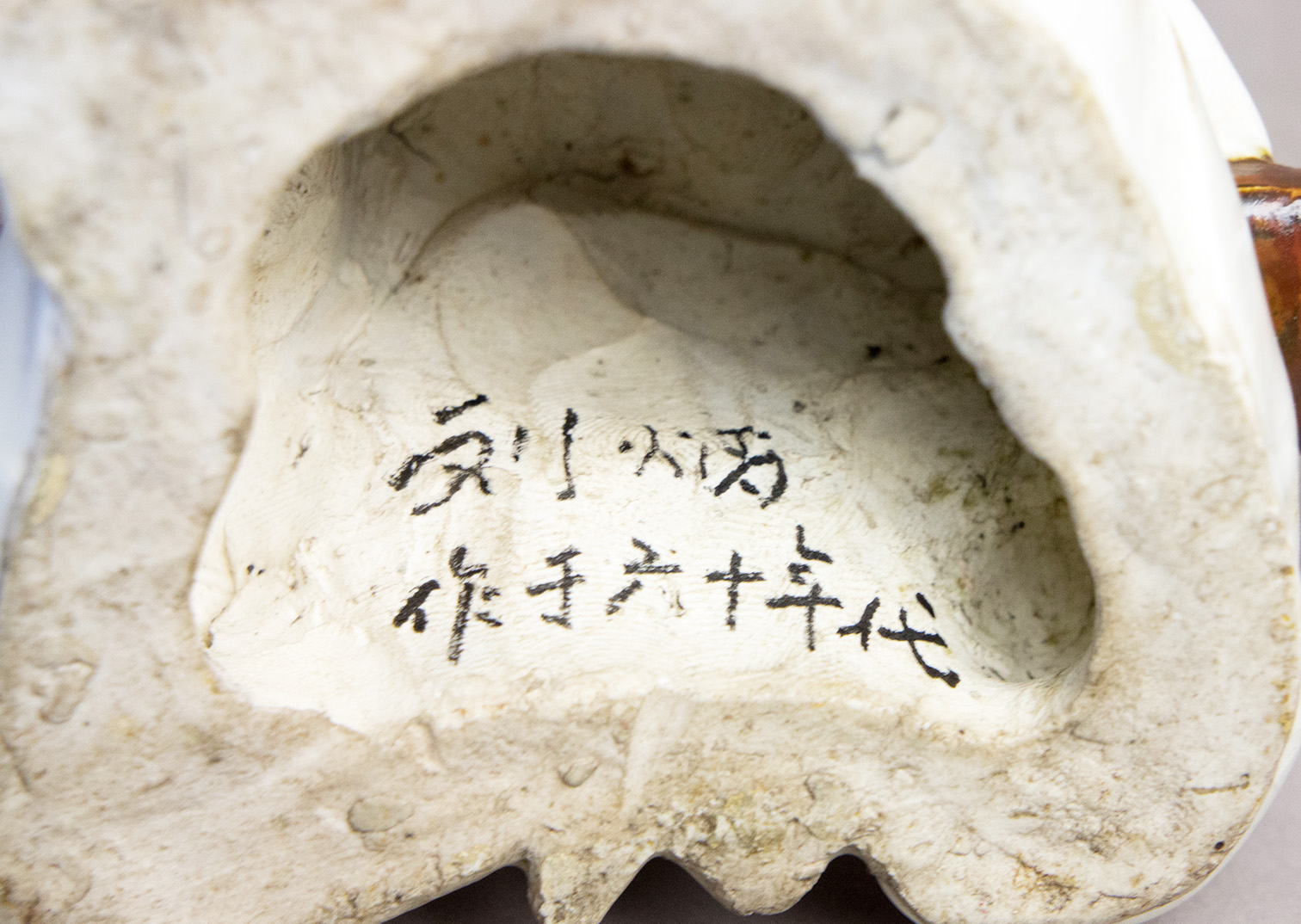伯牙, 牙白釉
60年代
劉炳作
Bo Ya in Ivory White Glase
1960's
By Liu Bing
H 9.9 cm
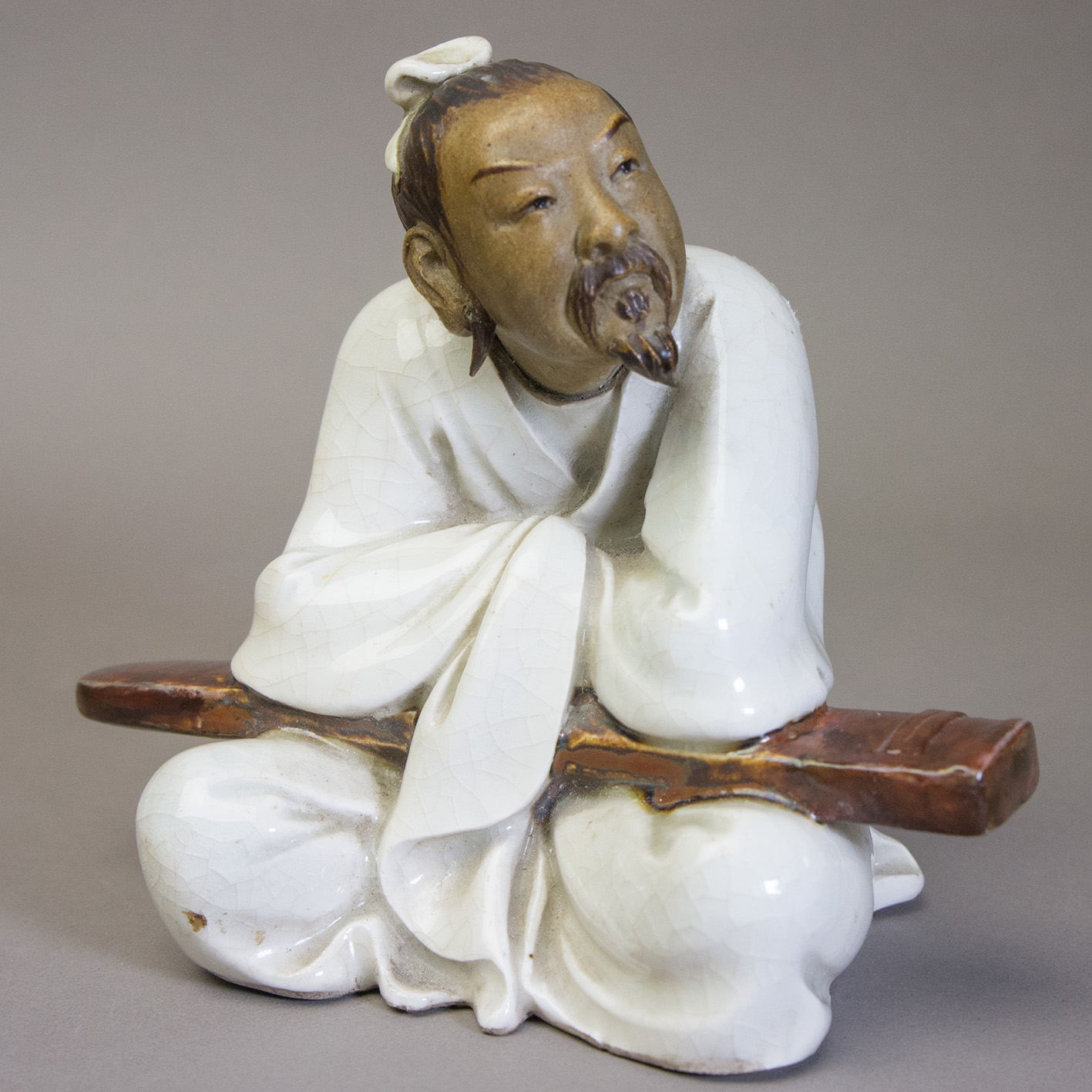
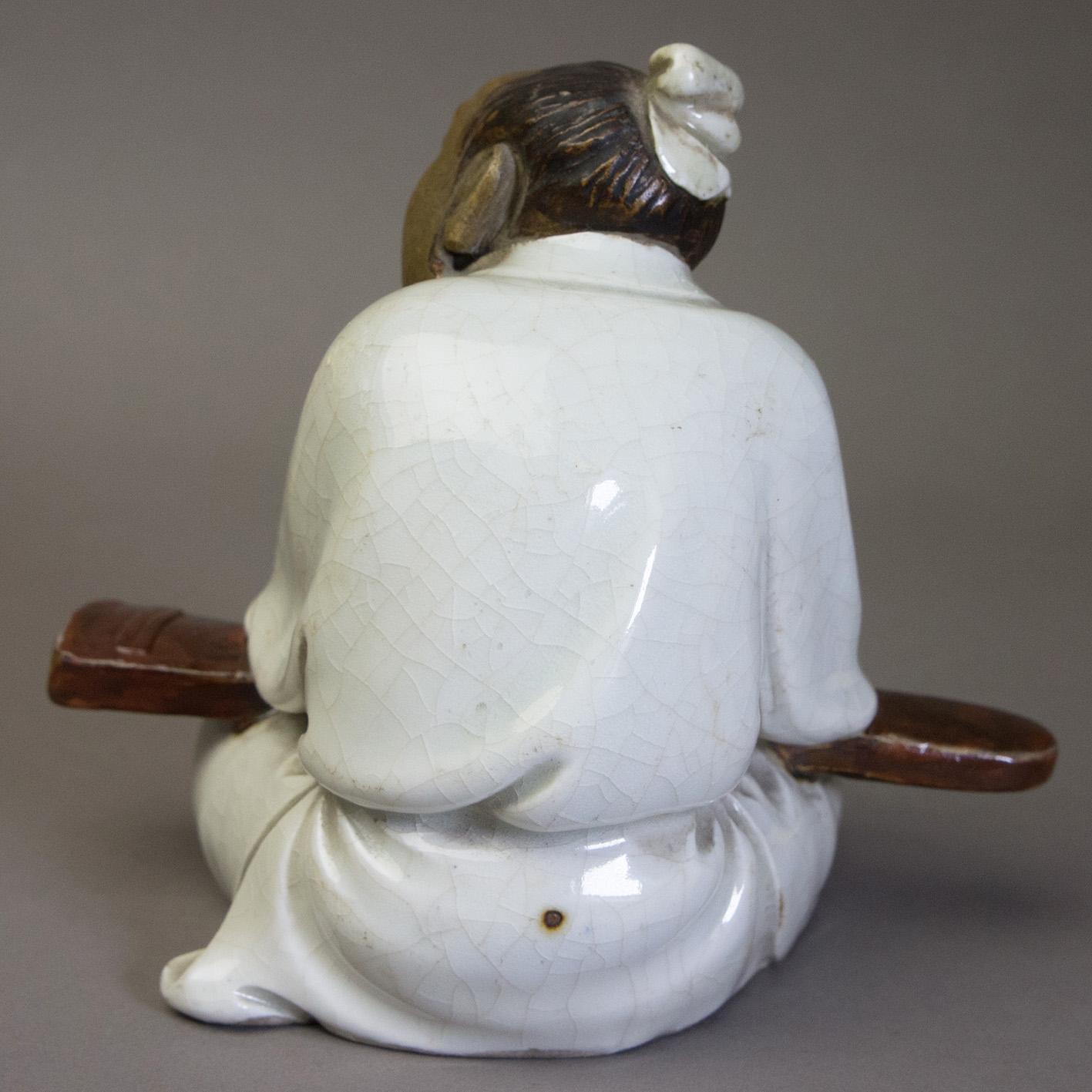
伯牙,中國春秋時期晉國大夫,伯氏,又作伯雅[1],著名的琴師,善彈七弦琴,因與鐘子期的知音故事而聞名於世。伯牙的事蹟首見於《列子·湯問》篇,另《荀子·勸學》和《呂氏春秋·本味》中也有記載。
明朝馮夢龍在《警世通言》中附會其“姓俞,名瑞,字伯牙”,為晉國上大夫,原籍楚國郢都。後人多有採用此說者,如京劇《伯牙碎琴》(又名《馬鞍山》、《知音會》)。
1976年,國際天文學會命名水星上的一座環形山為“伯牙環形山”,以紀念這位藝術大師。1977年,相傳為伯牙所作的琴曲《流水》,作為人類音樂典範作品之一,被NASA收錄進旅行者金唱片中
Bo Ya (伯牙) was a qin player from the Spring and Autumn Period or the Warring States period. He was known by his first name of "Boya", although his surname may have been Yu (俞), thus his complete name is sometimes given as Yu Boya (俞伯牙). The Lute Platform in Hanyang, Wuhan, China was where musician Yu Boya is said to have played. He is associated with the guqin pieces Gao Shan 《高山》 ("high mountains") and Liu Shui 《流水》 ("flowing water").
According to Qin Shi, Liezi said:
"Bo Ya was good at playing the qin. Zhong Ziqi was good at to listening to the qin. When Bo Ya's will was towards high mountains in his playing, Zhong Ziqi would say, 'How towering like Mount Tai!' When Bo Ya's will was towards flowing water in his playing, Zhong Ziqi would say, 'How vast are the rivers and oceans!' Whatever Bo Ya thought of Ziqi would never fail to understand. Bo Ya said, 'Amazing! Your heart and mine are the same!' When Ziqi died, Bo Ya broke the strings [of his qin] and vowed never to play [the qin] again. Thus, there was the melody of High Mountains Flowing Water."
Bo Ya's story exemplifies the Chinese ideal of friendship. The term Zhiyin (知音,literally "to know the tone") has come to describe a close and sympathetic friend.
劉炳, 1939年出生於廣東石灣鎮,祖藉順德騰涌鄉。1955年加入陶瓷工藝生產合作社。中國工藝美術大師,中國陶瓷兿術大師。石灣著名劉氏陶藝作坊第五代傳人。
Liu Bing, born in 1939 in Shiwan. Native of Shunde Teng Chung, Guangdong. Starting ceramics works by joining the Ceramic Production Cooperative in 1955.Chinese National Great Master of Arts and CraftsChinese Great Master of Ceramic Arts. He is the 5th generation of famous Liu’s pottery workshop.
 HOME
HOME